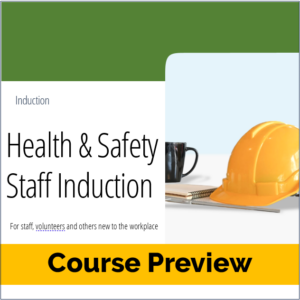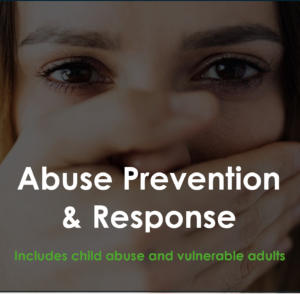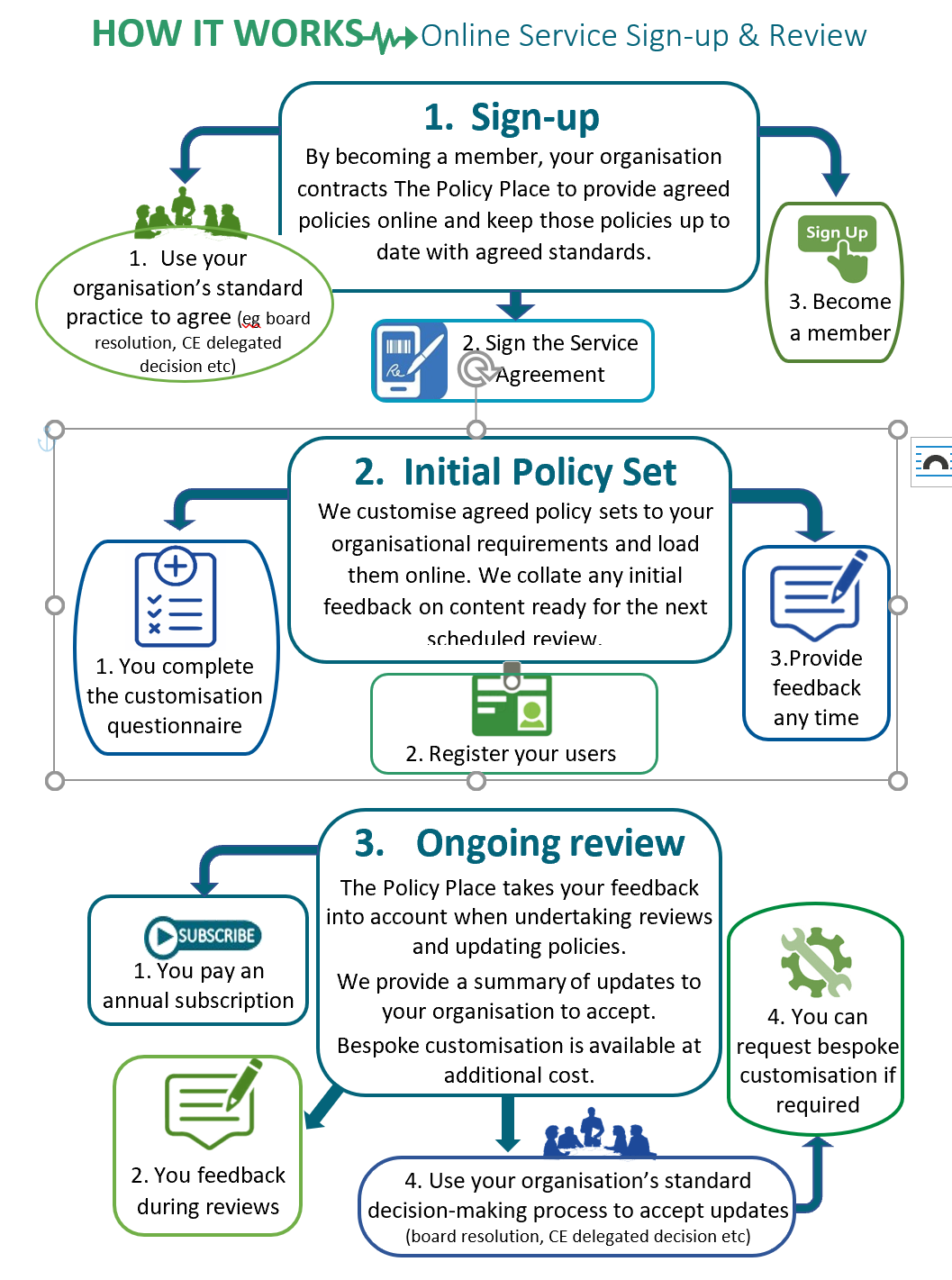Compliance
NEW Online Courses for policy implementation
The Policy Place’s new online courses are going to be a game changer if you’re one of the many workplaces that struggles to get their staff to use organisational policies and procedures,
Policy implementation is one of the most common challenges across industries. And it’s a major risk area for organisations.
The Policy Place’s new offering of online courses is addressing the problem head-on with exciting new courses that get people actively engaged in policy content.
In this post, we look at the importance of policies and procedures in the workplace and how The Policy Place’s pairing of policies and procedures with online courses will improve policy implementation.
Importance of Policies and Procedures
Policies and procedures are crucial to an organisation’s compliance and successful functioning. We’ve recently written about their importance (eg Why are policies and procedures important in 2024?)
We’ve also focused previously on how policies and procedures are a key risk management strategy. They help guide a workplace to deal with key hazards such as corruption, fraud, physical danger, mental injury etc.
They help prove that an organisation takes reasonable care of its people and assets.
If policies aren’t being used then managers need to do something about it.
If you’ve never brought a policy to the attention of staff, then if there’s a breach of policy, your ability to take disciplinary action will be severely undermined. Likewise, you can’t rely on your health and safety policy if staff haven’t familiarised themselves with it.
Online courses with policies
So knowing and using organisational policies and procedures is a “no brainer”. But easier said than done?
How do you get your people to actually use the policies?
The Policy Place’s online courses are going to help. The courses cover key compliance and risk areas of policies and procedures.
They address some of the key reasons for non-engagement and resistance to policies. They are online and can be done anytime anywhere. They are interactive and interesting.
They will ensure that staff, management, and governance understand their key responsibilities. Managers will also be able to monitor that kaimahi have completed courses and are updated on key policy areas.
Here’s a brief Intro to the first batch of courses recently released.
Governance compliance courses
 The courses for boards, collectives, and other governance groups (3 courses) are going to help them fulfill their responsibilities in areas like financial management, strategy and risk management.
The courses for boards, collectives, and other governance groups (3 courses) are going to help them fulfill their responsibilities in areas like financial management, strategy and risk management.
This will help current board members and make the job of recruiting and onboarding new governance/board members easier.
Health and Safety Induction for staff
 In the first batch of courses, the Policy Place also has some courses for staff.
In the first batch of courses, the Policy Place also has some courses for staff.
A useful and must-do course is the Health and Safety Induction course. It’s not long but sufficiently detailed to inform new kaimahi/staff about their responsibilities, how risks are managed in the workplace and the organisation’s health and safety responsibilities.
Abuse Prevention and Response Course
 Another important course, especially for organisations working with tamariki and vulnerable people is the Abuse Prevention and Response course. This course addresses different types of abuse, signs of abuse, responding and reporting abuse.
Another important course, especially for organisations working with tamariki and vulnerable people is the Abuse Prevention and Response course. This course addresses different types of abuse, signs of abuse, responding and reporting abuse.
For an organisation subject to the Social Sector Accreditation Standards or Ngā Paerewa Health and Disability Services Standards, it will help prove compliance with the standards. It will be a great onboarding tool. It will also be a good refresher for existing staff.
Conclusion
You’re not alone if you experience problems implementing your policies. We know it’s a widespread issue.
With our new online courses, we’re addressing the problem.
You can enrol in a course as an organisation or individual. So go ahead and enrol Now!
Online policies and procedures – so easy!
Balancing privacy with family, whānau involvement
It can seem hard to balance a strong rights orientation, especially the right to privacy, with a family, whānau inclusive approach.
This post looks at how your organisational policy and procedures can help.
Balancing privacy with family, whānau involvement
How can we respect a client’s right to privacy but engage meaningfully with their whānau? A conundrum recently noted by the Mental Health inquiry.
The right to privacy especially in the health and personal wellbeing area is regarded as sacrosanct. It is important to clients’ trust in social and health practitioners. It helps free people up to kōrero about the things they need to, and move on from whatever ails them.
But the problem with privacy is its individualistic focus. It can leave a person, the client, feeling lonely.
The right to privacy, tends to reinforce views of the client as an individual and separate being first, with their relationships coming second. It helps “protect” or separate the individual from their connections to the extent the client wants this. Whether family, whānau, hapū are involved or connected in with the client, depends on the client’s choice and their activation.
As noted by the Mental Health Inquiry and many other reports, this approach can mean that family and whānau are left out in the cold about what’s going on with their person and how they can meaningfully support them. It is unhelpful to the healing process in both the short and longer term.
Organisational policy and procedures
So how can organisational policy help organisations balance the right to privacy with involving family and whānau in work with clients?
The evidence is clear: people want to connect, they need to (eg see Connection – the key to Healing and Resilience; Te Ōhāki: Whakawhanaungatanga Self-disclosure and information sharing is integral to this.
Organisational policies and procedures (eg referral, entry and planning policies) can help with requirements for:
- early engagement and kōrero with the client about who they connect with and how, their whakapapa and turangawaewae
- regular hui and other opportunities for mutual information sharing between client and family
- opportunities for positive client, family, whānau, hapū interactions
- whānau, hapū engagement and feedback in reviews and evaluations
- family, whānau, hapū engagement in exit planning
- when and how client information is shared by the organisation with others (eg with child protection matters).
So what about privacy? It’s still the client’s right but it’s not the starting point. The client’s rights to connectedness, whakawhanaungatanga, belonging and turangawaewae, are.
Contact the Policy Place if you want help with your organisational policies and procedures.




